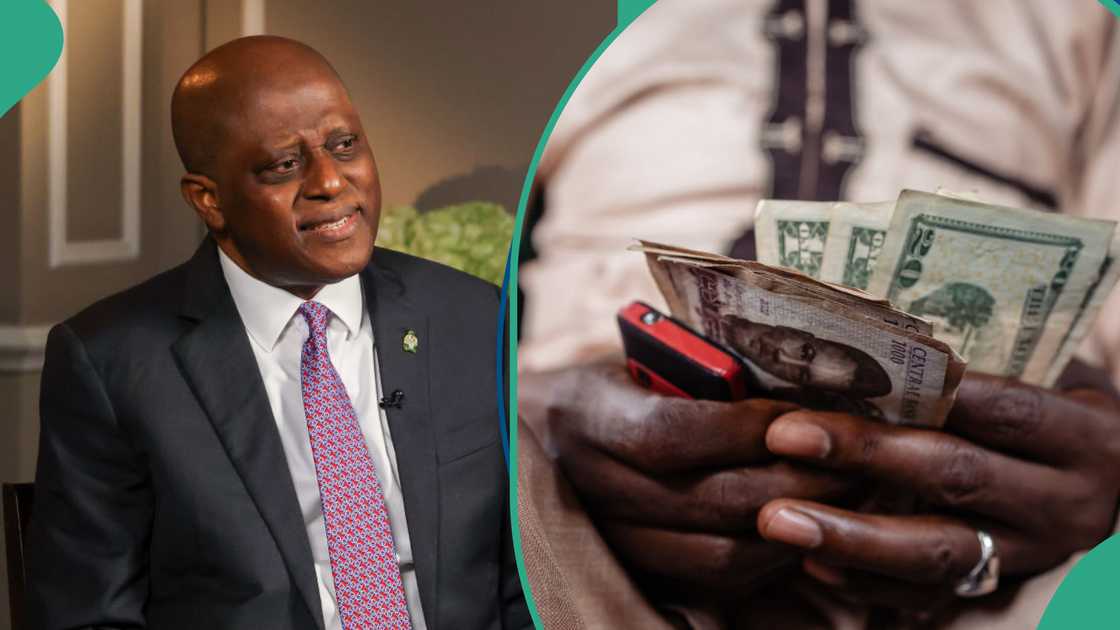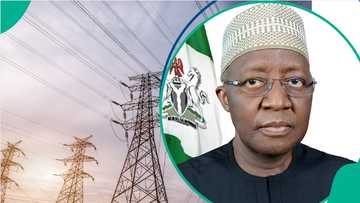New Exchange Rate: CBN’s New Policy Helps Naira’s Value Rise by Over N100
- The Nigerian currency has recorded a significant increase in the last one month since the implementation of EFEM
- The Electronic Foreign Exchange Matching System was launched on December 2 by the CBN to create transparency in the market
- After one month, the EFEM has yielded positive results for the naira in the official and unofficial market
The Nigerian naira has seen a notable recovery, appreciating by N125 against the US dollar within a month of the official launch of the Electronic Foreign Exchange Matching System (EFEMS).

Source: Getty Images
How does EFEM introduction help the naira?
Data from the Central Bank of Nigeria (CBN) revealed that the naira has strengthened by 8% or N125 since the day the EFEMS system became operational.
At the EFEM launch on December 2, 2023, the dollar was quoted at N1,660 in the official market.
The latest exchange rate shows that the naira against the dollar was N1,536 on Monday, January 6.
Similarly, the dollar has crashed in the black market from selling as high as N1,750 to the current rate of N1,655.
What to know about the EFEM
EFEMS is a platform introduced by the Central Bank of Nigeria (CBN) to facilitate foreign exchange (FX) transactions in the Nigerian Foreign Exchange Market (NFEM).
EFEMS aims to enhance transparency and governance in FX trading.
According to CBN, the EFEMS provides real-time pricing and visibility of buy and sell orders, automating the matching of orders to ensure transactions occur at the most competitive prices available.
EFEM reduces the risk of price manipulation and market distortions while curbing speculative trading and mitigating volatility.
BusinessDay reports that before EFEMS was introduced, Nigeria’s foreign exchange market depended on manual or semi-automated trading and was prone to inefficiencies and manipulation.
This has changed as EFEM centralises transactions on a single platform, ensuring real-time visibility and efficient processing.
Expert comments on EFEM
While EFEMS has delivered encouraging outcomes, industry experts caution that challenges remain.
In an interview with Legit.ng, Aminu Gwadabe, president of the Association of Bureaux De Change of Nigeria (ABCON), stated that the naira's appreciation relies on CBN interventions in the EFEMS market.
He also emphasised the need for increased liquidity in the retail exchange market through Bureau De Change (BDCs) to stabilise rates further.
Also, Muda Yusuf, CEO of the Centre for the Promotion of Private Enterprise (CPPE), acknowledged the progress made by the CBN but emphasised the persistent risk posed by the unregulated black market.
Yusuf stated:
“The measures taken by the CBN are yielding positive results, but it is still a work in progress. Speculators and market manipulators are constantly finding new ways to exploit the system, so this effort must be sustained.”
CBN revised guidelines for NFEM
Earlier, Legit.ng reported that the CBN has introduced revised guidelines for the NFEM.
Under the new framework, authorised dealers are required to facilitate FX transactions for businesses and individuals.
The CBN also asked dealers to conduct their due diligence, providing transparent pricing.
PAY ATTENTION: Сheck out news that is picked exactly for YOU ➡️ find the “Recommended for you” block on the home page and enjoy!
Source: Legit.ng





